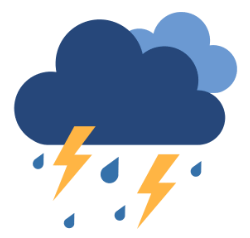Here's the lowdown
Ready to Dive into the Action? Book a consult
Prepare for the unexpected and secure a replacement income.
Did you know how many paid sick days you're legally entitled to each year? Just five!
While some employers may provide additional coverage, it's often limited.
Whether you're in the public or private sector, Salary Protection is essential for ensuring financial stability during illness.
Ever pondered the fallout from a serious accident or a debilitating illness sidelining you from work for months, even years?
Could your savings weather the storm?

Would the government's Illness Benefits, capped at €232 weekly for just two years be enough?
If you're flying solo, maybe. But with a family to support, it's a different ball game. That's where Income Protection steps in, offering up to 75% of your salary if you're unable to work due to sickness, disability, or injury.
Is it worth getting Salary Protection?
Listen, if you're content with constantly worrying about what would happen if you were unable to work due to illness or injury, then sure, skip Salary Protection altogether.
Who needs the peace of mind that comes with knowing you'll still have an income if life throws a curveball?

And who cares about financial stability and providing for your loved ones?
Salary Protection is totally overrated anyway. well, unless you've got a vault of gold bars stashed away or you're next in line to inherit an oil empire,
After all, who needs financial security when you've got endless reserves of wealth, right?
Just a friendly reminder to all you fellow self-employed folks out there: when it comes to Illness Benefit, we're basically out of luck.
Nada, zilch, zero. So, if the thought of being left high and dry without any income during tough times doesn't faze you, then by all means, carry on without considering Income Protection.
How Does Income Protection Cover Work?
Here's the lowdown: Income Protection chips in up to 75% of your salary if you're unable to work, until you're back on your feet or ready to retire and access your pension. Now, about that "deferral period" thing. It's like a waiting period before your insurance kicks in, lasting either 4, 8, 13, 26, or 52 weeks. Shorter waits cost more, while a year-long wait is cheaper. But let's be real—could you really manage a whole year without pay?
Picture this: You're earning €60,000, and you're out for 13 weeks due to, let's say, a run-in with a car.
Once those 13 weeks pass, your payment starts rolling in, covering your rent and bills.
Here's the breakdown: 75% of €60,000 is €45000 After subtracting State Illness Benefit (which is about €12064), you're left with €32936
That means once the cover kicks in, the insurer hands you €2,288 each month until you're back in action.
Fun fact: The average Income Protection claim in Ireland lasts around seven years.
So, if you were out for that long, you'd pocket a sweet €230552
Now, that's the difference between financial ruin and keeping the ship afloat.

Which Income Protection is Best?
When it comes to insurance policies, they're kind of like peas in a pod—similar but with a few twists. The basic product stays pretty consistent, but you'll encounter different flavors. Some plans are Reviewable, others are Guaranteed. Plus, there are little nuances to consider: like Irish Life covering you until 65, while Royal London holds out until 70.
Why choose DKFS for Income Protection? Well, why settle for anything less?
- Not all Income Protection policies are created equal; we'll scour the market to find the best one for you.
- Provides regular income if unable to work due to illness or injury.
- Covers up to 75% of your salary.
- Offers tax relief on premiums up to 40%.
- Flexible deferred periods: 4, 8, 13, 26, & 52 weeks.
- Option to increase cover every 3 years without underwriting.
- Guaranteed premium option ensures no increase in premiums.
- Exclusive additional discounts
Let's keep the ship sailing smoothly together! After all, no one thrives alone.


